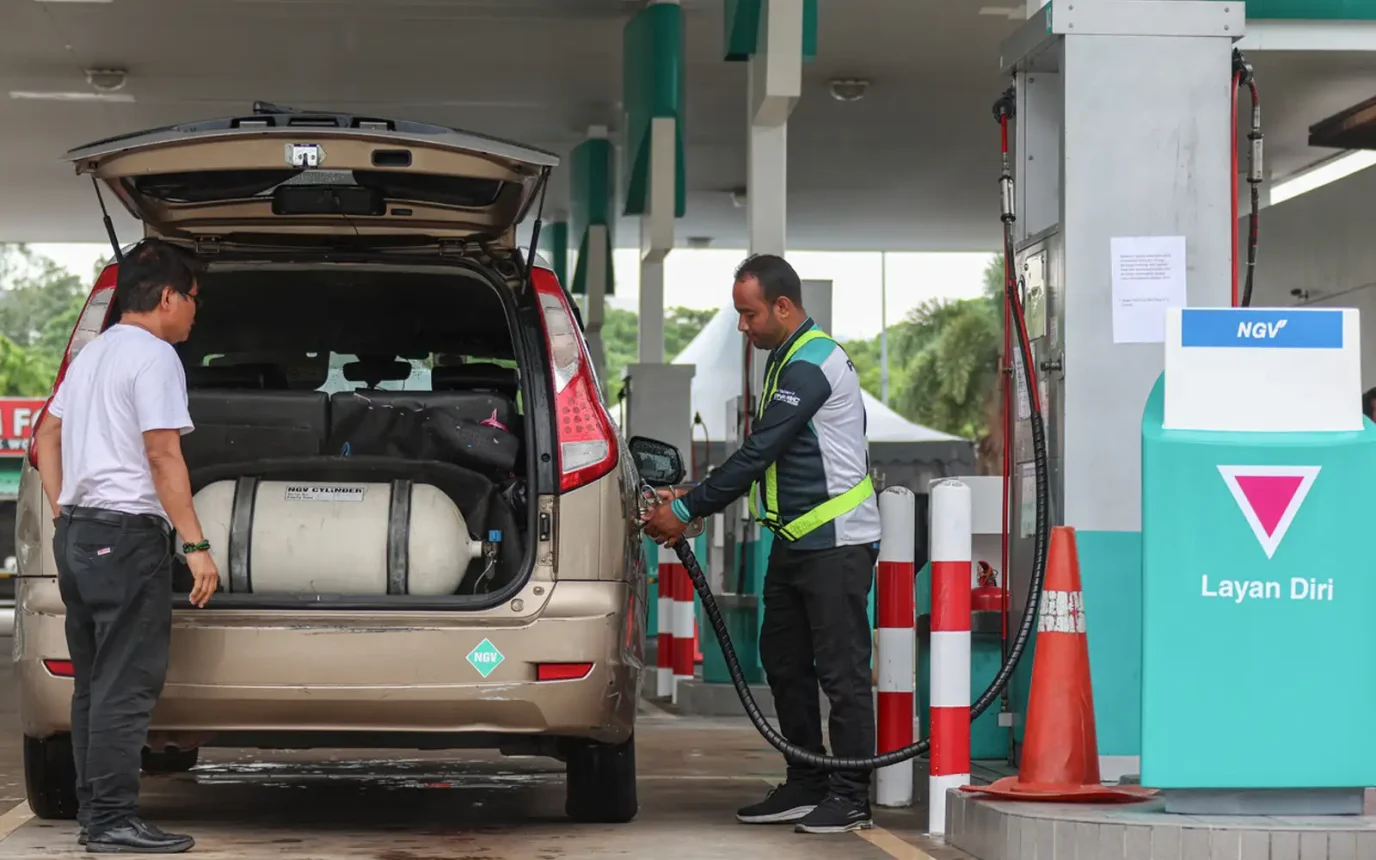
The Malaysian government has announced plans to phase out the use of compressed natural gas in motor vehicles by July 1, 2025, due to safety concerns.
In Malaysia, CNG is referred to as NGV.
Thefrontrank reports that Malaysia introduced the use of compressed natural gas in the late 1990s for taxicabs and airport limousines.
Transport Minister Anthony Loke Siew Fook said the decision, based on discussions in the Cabinet meeting on Oct 2, considers the potential hazards NGV-powered vehicles pose due to ageing NGV tanks, which are nearing the end of their safe usage life.
Fook said CNG-powered vehicles can no longer be registered or be used in Malaysia from July 1, 2025.
“These NGV tanks have a safe usage lifespan of approximately 15 years, and if they are not replaced, they become unsafe to use and may fail at any time,” he said at a press conference today.
The phase-out will impact 44,383 active NGV vehicles in Malaysia, including taxis, private vehicles, buses and machinery, which make up 0.2% of the nation’s registered motor vehicles.
In line with the policy shift, Petroliam Nasional Bhd (Petronas) will halt the sale of NGV at its stations in stages from July 1.
Applications for assistance for dual-fuel taxis that run on both petrol and natural gas will close on April 30, 2025, as all these vehicles must be fully petrol-powered by then.
To support affected vehicle owners, Petronas NGV Sdn Bhd has launched a Transition Assistance Programme offering three packages, which include an e-voucher for NGV taxi drivers worth RM3,000, paid within 30 days of application.
Besides that, Petronas will also offer free removal of NGV kits and a one-time payment for mono-fuel NGV vehicle owners.
This programme is designed to assist with safe transitions to alternative fuels and avoid potential risks associated with unauthorised modifications or outdated NGV equipment.
In Nigeria, the federal government is pushing for the adoption of CNG as an alternative fuel for transportation.
The initiative, introduced by President Bola Tinubu as a measure to curb the impact of the removal of petrol subsidy on individuals, “attracted over $200 million in investments so far as the government plans to build 1,000 conversion centres” across the country.


